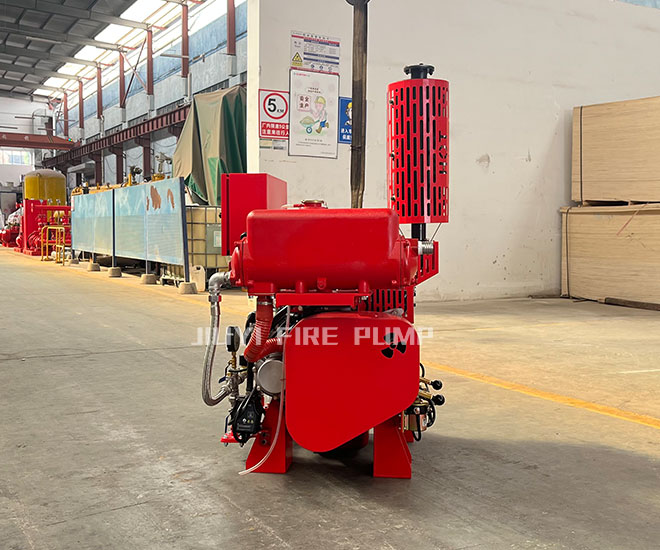
Fire pumps are critical for ensuring reliable water flow during emergencies. They are classified based on the power source, design, and operational features. Understanding these classifications helps in selecting the right pump for different fire protection needs. The primary classifications include:
1. Diesel Fire Pumps
- Power Source: Diesel engines drive the pump.
- Application: Common in areas where electricity may not be reliable or where backup power is essential.
- Advantages:
- Operates independently of the electrical grid.
- Reliable in power outages.
- Disadvantages: Requires fuel storage and regular maintenance.
- NFPA Standard: NFPA 20 governs the design and performance requirements.
2. Electric Fire Pumps
- Power Source: Electric motors drive the pump.
- Application: Ideal for areas with stable and reliable electrical supply.
- Advantages:
- Efficient and cost-effective in well-powered areas.
- Less maintenance than diesel pumps.
- Disadvantages: Vulnerable to power outages unless a backup generator is installed.
- NFPA Standard: NFPA 20 applies to electric fire pumps as well, with emphasis on emergency power backups.
3. Steam Fire Pumps
- Power Source: Powered by steam turbines.
- Application: Typically used in older industrial systems or facilities with steam-based operations.
- Advantages:
- Reliable in certain industrial settings.
- Disadvantages: Less common today, higher maintenance, and complex installation.
4. Horizontal vs. Vertical Fire Pumps
- Horizontal Fire Pumps: Mounted horizontally and typically used for small- to medium-sized systems.
- Vertical Fire Pumps: Mounted vertically, often used in systems with space constraints or where suction heads are deep.
Key Differences:
- Diesel Pumps are preferred for locations without reliable electricity or where backup power is critical.
- Electric Pumps are ideal for areas with consistent electricity supply, providing low maintenance and energy efficiency.
- Steam Pumps are less common today but may still be found in specific industrial applications.
Conclusion:
Choosing between diesel and electric fire pumps depends on factors such as the availability of power, location, and operational requirements. Diesel pumps offer greater reliability during power outages, while electric pumps are efficient and low-maintenance when grid power is stable.
